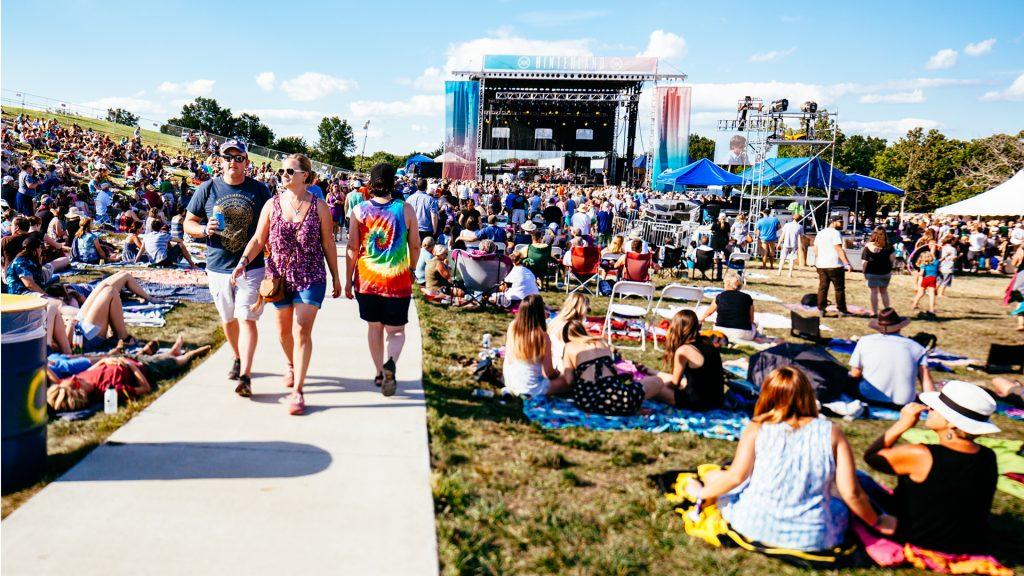Hofferber: Nathaniel Rateliff, Sturgill Simpson bending genre boundaries
Nathaniel Rateliff and Sturgill Simpson may not fit into strict genres of music, but they did put on great shows at Hinterland.
August 8, 2018
I have long held the belief that I hate all country music.
Part of me blames my upbringing of Sublime, Red Hot Chili Peppers, and Metallica over the country that played on the radio in my small town of 5,000 in the mountains of Pennsylvania.
Another part of me blames my older sister, whose musical tastes I emulated. The closest thing to country we jammed to was the Dixie Chicks, and even then only a few songs made the cut.
So the Hinterlands’ Aug. 4 lineup had me a little concerned, being more country-oriented. I could stand country music, but I didn’t think I could really get down the way I had Aug. 3. My Birkenstock feet were crusted in dust, bug bites lined my thighs, and I was exhausted in the way you can only be after baking in the sun all day. Would I have a good time? Would there be something to write about?
Nathaniel Rateliff & the Night Sweats and Sturgill Simpson proved all my worries wrong.
Now, both group’s genres are tricky to define. Rateliff’s is Southern rock-ish, with notes of country, gospel, soul, and some gritty Americana. Simpson’s felt like a marriage of rock, country, and singer-songwriter. His twangy voice — the twang usually steers me so far from country — was cross-cut with unbelievable guitar solos, riffs, and shreds. The simplistic layout of the set; the core of just the guitar, the ever-cool bass, and drums, kept it authentic and strong.
For Rateliff, bodies rocked and swayed around me, and his gritty, course, more-rock-than-country voice echoed over the speakers. Trumpets blared, guitars slammed, electric organ played, and Rateliff’s feet never stopped moving. It felt soulful and joyful, and hands clapped together like a lively church service. We’d come to be the choir when the band began “S.O.B,” the crowd rippling in offbeat handclaps and “ooohs.”
The performance was an injection straight to the vein of the festival, some well-needed adrenaline after a day in the slow Iowa heat.
Simpson began with an absolutely shredding guitar solo, one that started the performance off with a special oomph. Genre did not matter; it was a unique sound of melting electric guitar and strong, emotional voice twanging.
Hinterland has done well, seeking artists with unique genres and sounds to bridge gaps among the types of music people enjoy listening to. For me, there were only three bands I knew well enough to want to see before the festival, and now new artists are soon to be added to my Spotify playlists. It’s this booking, and the single-stage setup that guarantees audiences will hear new bands and different genres melded that makes Hinterland a unique festival.














